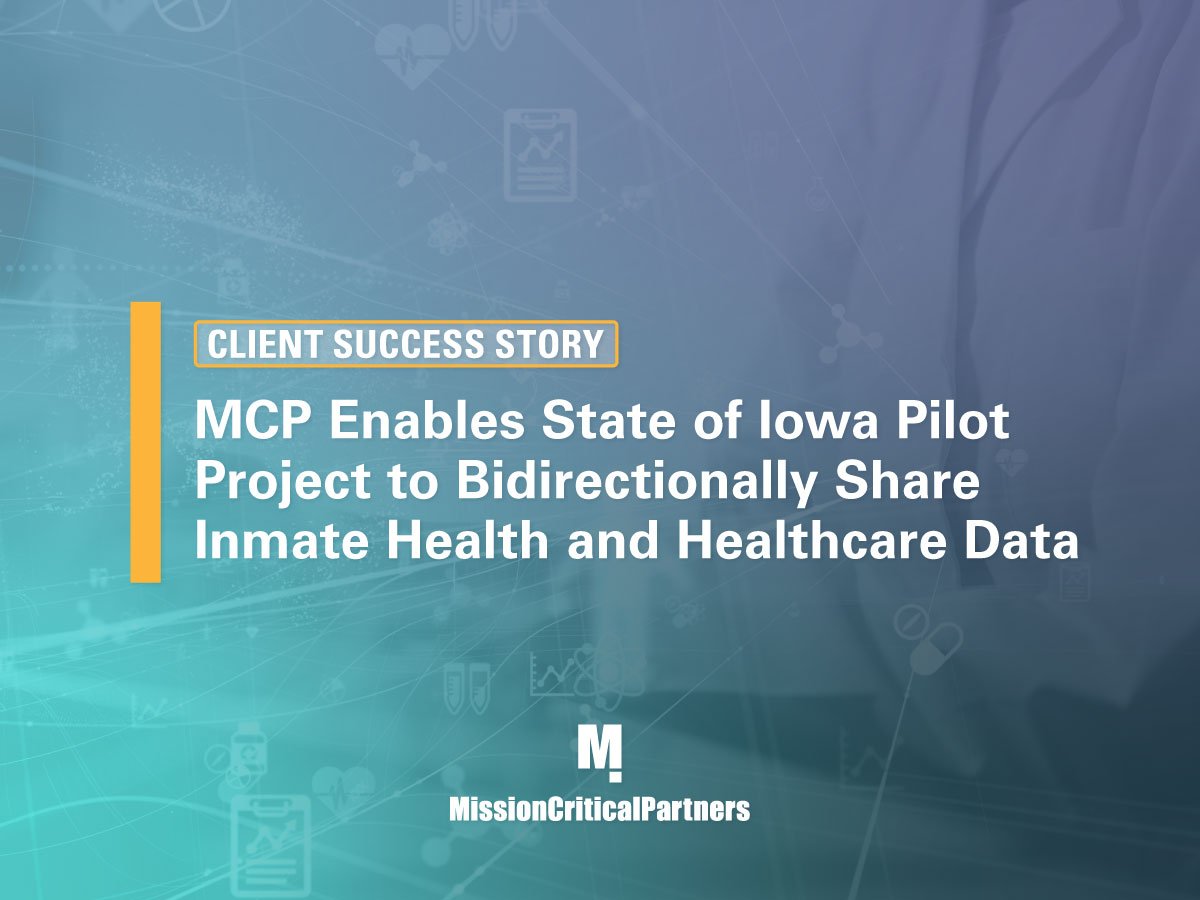- Cybersecurity & IT

Cybersecurity
Mission Critical Partners status as the leading independent provider of cybersecurity services for public safety and justice agencies in the federal, state, and local government markets. Learn more about our services that reduce cyber risk.
Read More

- IT Managed Services
- Vulnerability Management & Penetration Testing
- Third-Party Risk Management
- Virtual CISO Services
- NetInform® Security & Network Assessments
- NetPulse® Security & Network Monitoring
- Data Integration

Analysis & Insights 2023 – 2nd Edition
With hundreds of assessments across the public sector using our proprietary MAPS methodology, our industry experts have compiled and analyzed assessment data in a range of considerations. Learn more about the state of the industry today.
See the Insights

- DataScape Analytics Solution
- Software Development
- Consulting

Analysis & Insights 2023 – 2nd Edition
With hundreds of assessments across the public sector using our proprietary MAPS methodology, our industry experts have compiled and analyzed assessment data in a range of considerations. Learn more about the state of the industry today.
See the Insights

- Next Generation 911
- Shared Services & Consolidation
- Facilities
- Community Broadband
- Technology
- Strategy, Management and Organization
- Wireless Communications
- Geographic Information Systems
- Land Mobile Radio
- Continuity of Operations & Disaster Recovery
- Workforce Optimization
- Model for Advancing Public Safety
- Who We Serve

Analysis & Insights 2023 – 2nd Edition
With hundreds of assessments across the public sector using our proprietary MAPS methodology, our industry experts have compiled and analyzed assessment data in a range of considerations. Learn more about the state of the industry today.
See the Insights
- 911 & Emergency Communications Centers
- Criminal Justice
- Smart & Safe Cities
- Law Enforcement
- Utilities
- Healthcare
- Biometrics & Repositories
- Education
- Emergency Management
- Courts
- Fire & EMS
- Resources

Grant Management Program
Mission Critical Partners offers complimentary, unlimited, and customized grant funding assistance to help our clients find applicable grants and secure funding to achieve their goals.
Read More
- MCP Insights Blog
- News & Articles
- Webinars & Training
- Case Studies
- Books by MCP
- On-Demand Webinars
- Infographics
- Events
- Subscribe to the MCP Newsletter
- White Papers
- MCP Podcast Network
- About Us
- Careers





